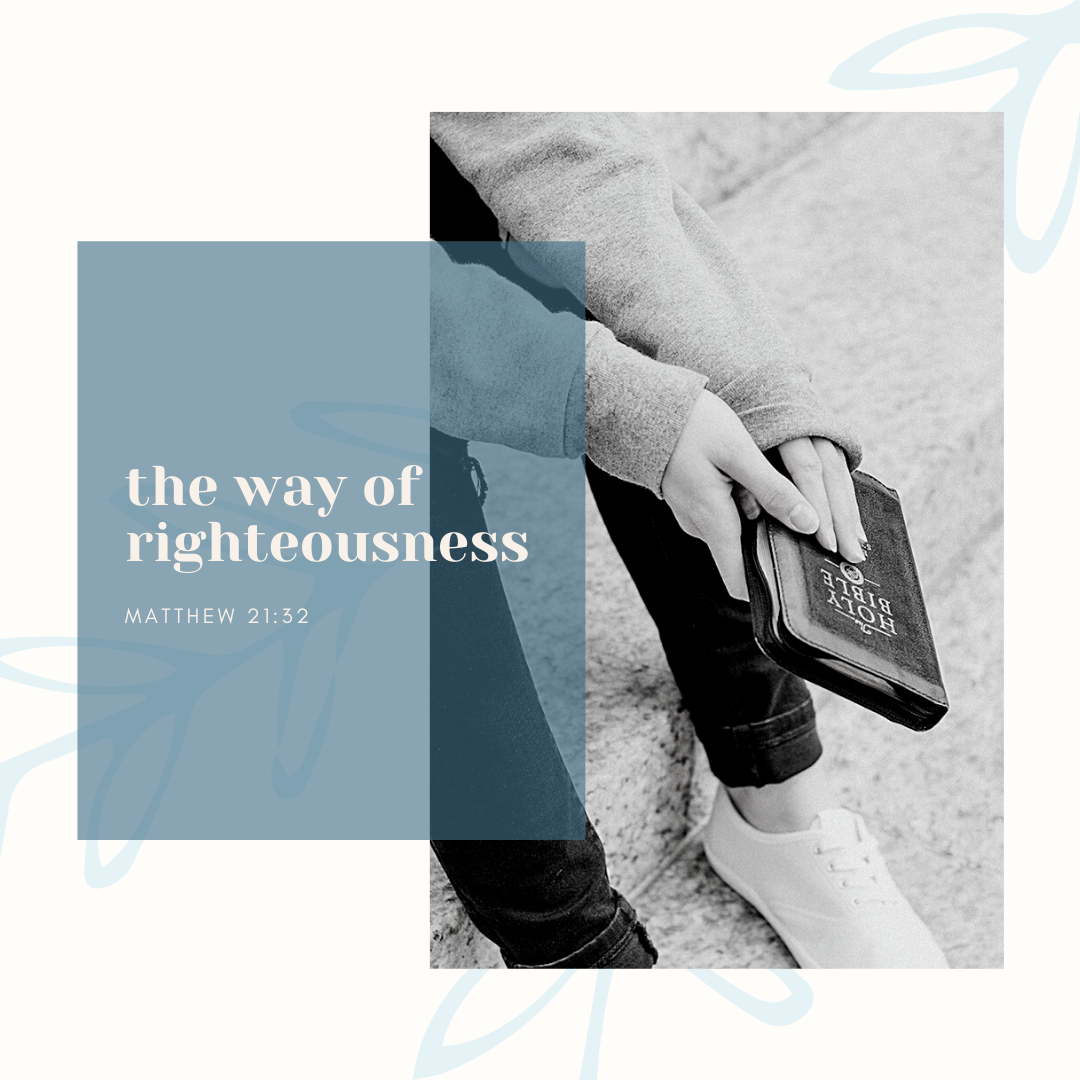October 11, 2020
Pastor Gunnar Ledermann
Matthew 21:28-32
Matthew 21:28-32
28 “What do you think? There was a man who had two sons. He went to the first and said, ‘Son, go and work today in the vineyard.’
29 “‘I will not,’ he answered, but later he changed his mind and went.
30 “Then the father went to the other son and said the same thing. He answered, ‘I will, sir,’ but he did not go.
31 “Which of the two did what his father wanted?”
“The first,” they answered.
Jesus said to them, “Truly I tell you, the tax collectors and the prostitutes are entering the kingdom of God ahead of you. 32 For John came to you to show you the way of righteousness, and you did not believe him, but the tax collectors and the prostitutes did. And even after you saw this, you did not repent and believe him.
When you were a kid and your parents asked you to take out the trash, what happened? I’m sure you took it out right away with a big smile on your face so thankful for the chance to do a chore for your parents and I’m sure when they gave you your allowance you were so surprised that you could have the double reward of being paid for something you just love to do.
We all like the image that comes with being a good person. As kids we like it when our parents are proud of us and brag about us taking out the trash, getting a good trade on an assignment, doing well at a piano recital, scoring a goal in soccer or eating all of our vegetables at dinner. As adults we still like people to think of us as a good person. We like it when people describe us with words like dependable, kind, generous, good listener and hardworking. We all like the image that comes with being a good person, but the whole doing part is often a challenge. Doing what it takes to be a good person is more than saying you will take out the trash, get an “A” on a test, score a goal in soccer, show up on time for a meeting, make someone a meal when they are sick or get laid off from work, and getting up each day to take care of your family. To have people call you a good person means actually doing the good things you say you will do. If you say you are going to do something, and then you do not do that thing, then you are bad. And, this is what you and I do when we say that we are going to do something God wants us to do, and then we do not do it.
When you do not do what God wants you to do it is sin. And, when you sin, God stands ready to punish you because sin is bad. And, this statement ought to strike fear into our hearts, but we know the words to get out of the bad sins and punishment God threatens. When I ask for forgiveness, all of my sins are gone; I do not have worry about them. However, those words can become so easy for us to say that the timing between sinning, being afraid of God’s punishment and asking for God’s forgiveness can get flipped around. What I mean to say is that we are tempted as believers to first ask God’s forgiveness, which frees us from punishment and then jump into sin. This temptation is a true danger for us as believers because when we see God’s forgiveness as permission to sin, rather than rescue from sin we no longer love God. Instead, we love sin, and sin leads to death and hell.
Jesus told a parable to illustrate the terrible temptation to tell God what he wants to hear but run off to commit the sins God promises to punish. In Matthew 21, Jesus told the following parable to the Pharisees who rejected God’s forgiveness and were lost in sin, 28 “What do you think? There was a man who had two sons. He went to the first and said, ‘Son, go and work today in the vineyard.’ 29 “‘I will not,’ he answered, but later he changed his mind and went. 30 “Then the father went to the other son and said the same thing. He answered, ‘I will, sir,’ but he did not go. 31 “Which of the two did what his father wanted?” The answer was obvious to the Pharisees, and to us, that it was the first son who did what his father wanted. It was not the son who only said the right things to his father without doing them, but the son who changed his mind and listened to his father that did what his father wanted. And so, it is with you and me.
God is not interested in your ability to recite the right words to show how sorry you are along with the right words to ask for his forgiveness so that you can go chase after whatever your sinful heart desires; God is interested in your heart. In Ezekiel 18, God spoke through the prophet Ezekiel to the people of Israel calling out to them so that they would not be lost to sin and unbelief, 31 “Rid yourselves of all the offenses you have committed, and get a new heart and a new spirit. Why will you die, people of Israel? 32 For I take no pleasure in the death of anyone, declares the Sovereign Lord. Repent and live!” God’s desire for his people Israel and for you is that you repent, trust in him and live. God wants you to live free from sin, free from the punishment that goes along with sin and free from loving to do sinful things. This freedom from what is wrong is what Jesus called 32 “the way of righteousness.” After his parable to the Pharisees, he said, 32 “For John came to you to show you the way of righteousness, and you did not believe him, but the tax collectors and the prostitutes did. And even after you saw this, you did not repent and believe him.” Jesus was referring to John the Baptist, whose message was for people to repent. Earlier in Matthew 3, it was said of John the Baptist, 3 “This is he who was spoken of through the prophet Isaiah: “A voice of one calling in the wilderness, ‘Prepare the way for the Lord, make straight paths for him.’” John the Baptist made straight paths to the “way of righteousness” by calling people to repentance. Biblical repentance is recognizing your sins, trusting in Jesus’ forgiveness and living free from sin.

This repentance is all made possible through Jesus. Through Jesus you have been freed from your sins. In Romans 13, the Apostle Paul briefly listed what God wants you to do, “You shall not commit adultery,” “You shall not murder,” “You shall not steal,” “You shall not covet,” and whatever other command there may be, are summed up in this one command: “Love your neighbor as yourself.” Each time you did what the second son did and said, “Yes, I’ll keep your commands.” Then, broke them, Jesus said, “Yes.” And, he did what God wanted him to do. In Philippians 2, Paul shared what Jesus did to free you from all your sins, 6 “[Jesus] Who, being in very nature God, did not consider equality with God something to be used to his own advantage; 7 rather, he made himself nothing by taking the very nature of a servant, being made in human likeness. 8 And being found in appearance as a man, he humbled himself by becoming obedient to death—even death on a cross!” Jesus did not use his equality with God to his own advantage. Instead, he used his equality as God, meaning his perfect, righteous, sinless, good life for your advantage. He allowed his innocent life to be sacrificed in your place. His obedience is the reason you are saved and the reason you are righteous before God.
The way of righteousness is Jesus, not your own righteousness. You and I are also the son that has said, “No, I will not do what you want God.” Then, God changed your heart calling you to repentance. God is the one who changed your heart to trust in him and live for him as we hear in Ephesians 2, 8 “For it is by grace you have been saved, through faith—and this is not from yourselves, it is the gift of God— 9 not by works, so that no one can boast. 10 For we are God’s handiwork, created in Christ Jesus to do good works, which God prepared in advance for us to do.” By his undeserved love, by his grace, God saved you, called you to faith and works in you to do the good he wants you to do. Doing what God has called you to do is not asking the question, “What would Jesus do?” Instead, it is “What has Jesus done for me?” And then sharing that same love with others; to call others to repentance and tell them of Jesus forgiveness.
When you were a kid and you said that you would take out the trash, but you did not, the garbage piled up. Your sins are a pile too big for you to carry. Jesus carried them for you. He did what needed to be done for your Father in heaven to see you as good. And when he finished his work to save you, Paul wrote it Philippians 2, 9 “Therefore God exalted him to the highest place and gave him the name that is above every name, 10 that at the name of Jesus every knee should bow, in heaven and on earth and under the earth, 11 and every tongue acknowledge that Jesus Christ is Lord, to the glory of God the Father.” You are in the kingdom of God because Jesus did what you did not so that God can tell you, “Well done!” Amen.



